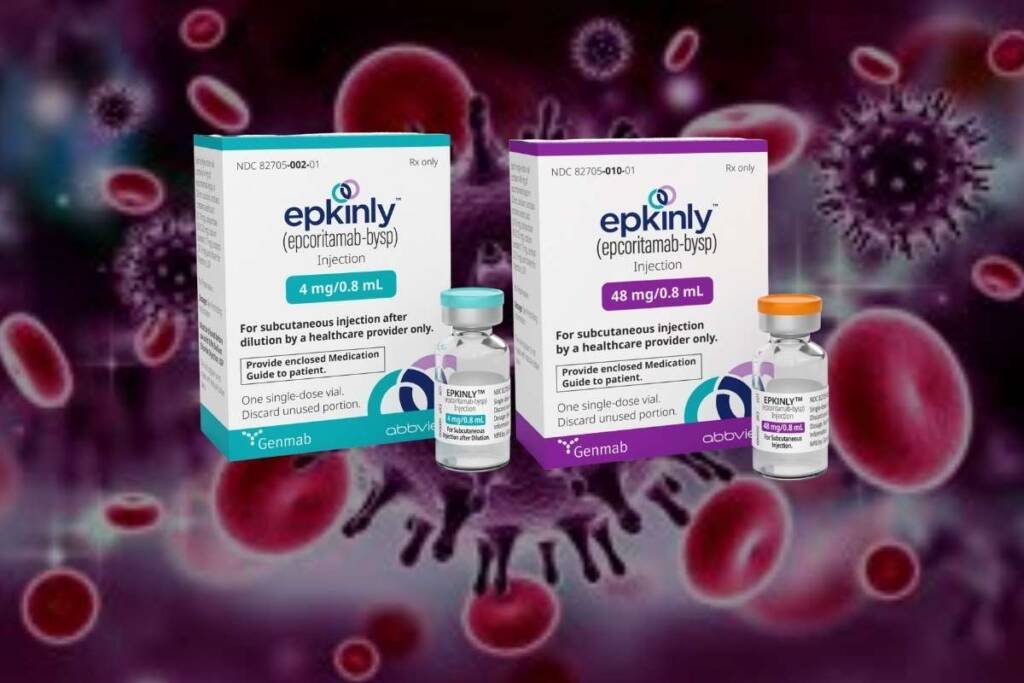Source – AbbVie
AbbVie and Genmab’s potential blockbuster drug epcoritamab has received a favorable recommendation for conditional approval in the EU as a treatment for diffuse large B-cell lymphoma (DLBCL), a highly aggressive form of non-Hodgkin’s lymphoma.
The European Medicines Agency’s human medicines committee (CHMP) has issued a positive opinion on epcoritamab, a CD20xCD3 bispecific antibody, proposing the trade name Tepkinly. It is intended for use in adults with relapsed or refractory DLBCL after two or more lines of systemic therapy. A final decision from the European Commission is expected later this year.
This recommendation follows the recent approval of Roche’s competitor CD20xCD3 bispecific antibody, Columvi (glofitamab), by the European Commission for the same indication as a third-line or later therapy for DLBCL.
Epcoritamab already obtained accelerated approval for the same indication in the United States in May, under the trade name Epkinly, setting the stage for a head-to-head battle in the market with Roche’s Columvi.
Industry analysts at Jefferies predict that AbbVie and Genmab’s drug could generate up to $2.75 billion at its peak, which would help AbbVie offset some of the impact of biosimilar competition to its immunology blockbuster, Humira (adalimumab).
Experts believe that epcoritamab may have an advantage over Roche’s drug due to its strong efficacy data and more convenient administration. While epcoritamab can be administered via subcutaneous injection, Columvi requires intravenous infusion. However, Roche contends that the fixed duration of treatment with Columvi provides it with a competitive edge.
These bispecific antibodies are being positioned as off-the-shelf alternatives to CAR-T therapies, such as Gilead Sciences’ Yescarta (axicabtagene ciloleucel) and Novartis’ Kymriah (tisagenlecleucel), which have revolutionized NHL treatment. Unlike CAR-T therapies, bispecifics offer simpler manufacturing and administration procedures and do not require in-hospital care.
The positive opinion for epcoritamab in DLBCL is based on the encouraging results from the Phase I/II EPCORE-NHL-1 trial. The drug demonstrated an overall response rate of 61%, including 38% complete responses, and a median duration of response of around 12 months. For comparison, Columvi showed an overall response rate of 52%, with 39% complete responses, and 78% of them responded for 12 months or more in a similar trial population.
Both AbbVie/Genmab and Roche are working to advance their bispecifics up the treatment pathway for DLBCL, with ongoing trials as second- and first-line therapy.
Roche is looking to position Columvi alongside its CD79b-directed antibody-drug conjugate (ADC), Polivy (polatuzumab vedotin), which received FDA approval for first-line in April.
Other CD20xCD3 bispecifics in late-stage development for third-line DLBCL include those from Regeneron and Johnson & Johnson/Xencor.





























